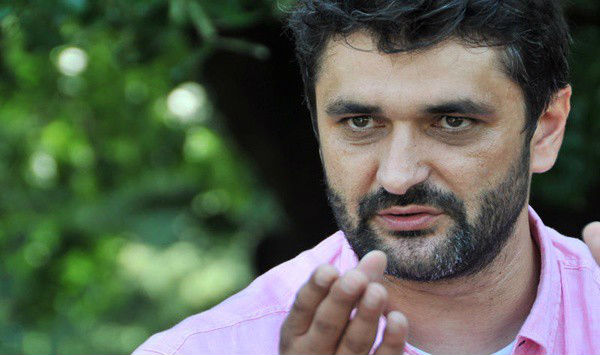
We paid with thousands of lives for crimes that were committed. To one day be able to talk candidly with Serbia, they will have to face the facts that are judicially determined, said today Deputy Defense Minister Emir Suljagić for television N1.
Suljagić was twenty when the genocide in Srebrenica happened, and he survived it thanks to the fact that he worked for the United Nations.
Official Belgrade rejects the term “genocide”. It admits that Srebrenica was a crime, but always adds a “but”, mentioning the crimes on all sides.
“There is a fight between two camps in Serbia. One is the one who wants Serbia to move forward, and the other that wants to stay on the platform of the ‘90 years, but this is not possible. Maybe the resolution will be adopted, maybe not. Whatever Belgrade thinks, Srebrenica will not be forgotten, and the war criminals will not be sparedm,” he said.
Serb leadership expressed concern that Serbia might get the label of a perpetrator of genocide, and that the existence of Republika Srpska could be challenged.
“Serbia is the only country in Europe that does not know where it begins and where it ends. Caring for the Serbian part of Bosnia and Herzegovina can only hurt it,” considered Suljagić.
These days everyone is appealing for reconciliation. Belgrade has precisely that argument against the resolution.
“If reconciliation is intended to be a process where we'll negotiate on the facts, there is no need for that. On the facts there is no negotiation. Facts are facts and they don’t have religion, ethnicity or any other affiliation,” he stressed.
Suljagić commented on the division within BiH: the State Parliament has no resolution on Srebrenica, and attitudes range from denial of genocide to restraint and neutrality.
“I was surprised, during the last voting in the BiH Parliament, the attitude of the HDZ who voted abstained on the subject of the Resolution on Srebrenica. Hardly anyone can be reserved on the subject of genocide. Official Zagreb, Milanović and Grabar Kitarović have no dilemma about the events in Srebrenica, and the HDZ, Dragan Čović openly flirts with the greatest denier of the genocide in Srebrenica, Milorad Dodik,” said Deputy Minister of Defense.
He says that after each July 11 he goes home, cries his eyes out and this happens to all the survivors.
“It is not my place to forgive and forget. I was 17 when the war started, and now I am 40. All my life I know for violence, instability, poverty and crisis. I do not want the future generations to live so. The denial of the crimes is cynicism. I agree with Vučić that we have to live together, but we cannot accept that under any circumstances,” said Suljagić.
Aleksandar Vučić, the Serbian prime minister, announced last night the arrival in Srebrenica.
“My attitude is that it is good to come to Srebrenica. He can recognize or not recognize the genocide in Srebrenica, but he will come and worship the victims of crimes in the court characterized as genocide, will fit next to a stone that says genocide. It's good for the future of Serbia. The sooner Serbia gets away from the toxic baggage of the ‘90s everyone will be more comfortable in the former Yugoslavia” said in an interview with N1 Deputy Defense Minister Emir Suljagić.
Trafika|Ba



